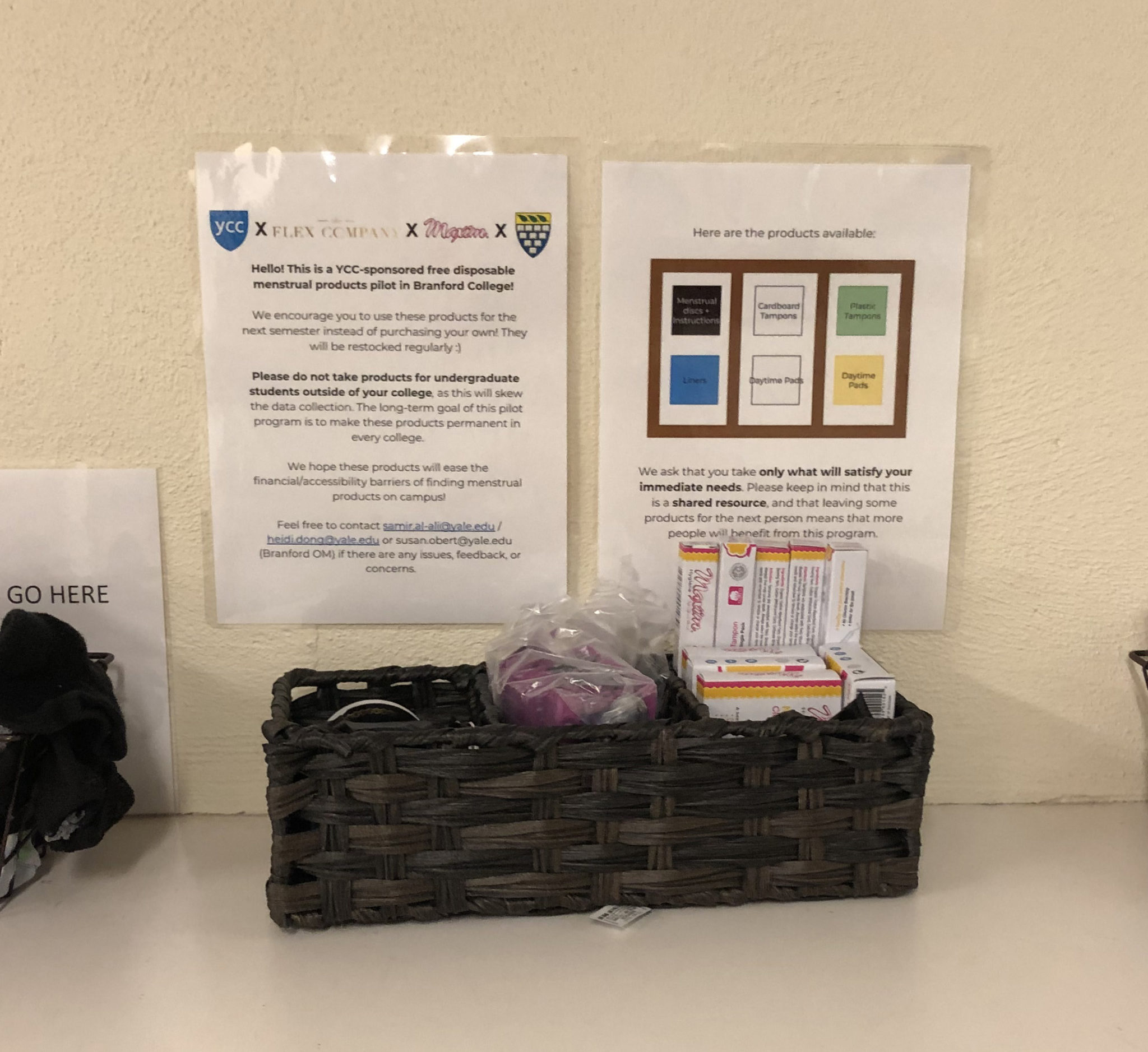
Thomas Pointer
The Yale College Council initiative to provide free, disposable menstrual products in all residential colleges will continue as planned and is expected to launch after fall break.
The program, which began with a two-college pilot in spring 2018 and a 14-college pilot last semester, will offer liners, daytime pads, night-time pads and tampons to students in two locations in each residential college, according to YCC senator Samir Al-Ali ’21. The residential colleges, through the Yale College Dean’s Office, will provide funding for the program this year, YCC President Kahlil Greene ’21 said.
“Menstrual products are a necessity, not a luxury,” Al-Ali, who led the initiative, said. “[Disposable menstrual products] are just as necessary as toilet paper — which is distributed for free — and accommodate a process just as natural.”
According to Ali, the products included in the launch are based off of what was used most frequently during last semester’s pilot. Still, he noted that the YCC welcomes incorporating any feedback they receive on the project. Ali added that the locations will remain the same as last spring’s pilot — each college’s laundry room and a restroom.
While Branford College Council Co-President Michelle Hu ’20 said that at the beginning of the year, the council was told that the program’s funding source was uncertain, they were soon updated that funding would be provided “after all.”
Last semester’s pilot was funded partly by two corporate sponsors — Maxim and Flex — but this year, the YCDO will be the primary funding source.
Ali noted the extent to which the program required administrative support. He cited “many conversations with administration, college operational staff and aides, students and volunteers,” whose help has made the initiative possible.
He added that while the details have not yet been confirmed, Yale’s Community Consent Educators — who, among other tasks, provide condoms in each college — will potentially play a role with the products’ distribution in the future.
“We’re truly grateful for all the support we have received from students and administrators alike; institutional support has been so vital because it shows a recognition on Yale’s part that there are still things we can and must do to make this a better Yale for all of its students,” Al-Ali said.
When asked what he hopes will change regarding this year’s program, Benjamin Franklin College Council President Spencer Hagaman ’21 also mentioned the need for menstrual waste baskets in gender neutral restrooms. He added that it is a “very important issue” that he would like to see the YCC, Dean’s Office and the Office of Facilities work on. According to Hagaman, while menstrual waste baskets are present in some gender neutral restrooms, the design of the new residential colleges in particular, did not include such provisions.
“I think with more time the program will become more successful,” Hagaman said. “Right now we’ve only launched a pilot, [but] when we launch the full thing, we’ll learn more.”
Hagaman added that he believes the program was “very successful” last year and noted that it importance, serving roughly 50 percent of Franklin’s population.
Ali emphasized that the lack of free and accessible disposable menstrual products on campus has “disproportionately burdened … female, low-income students.” Hu added that the BCC was “glad” to see the program’s continuation, as it is a “great” and “necessary” service for students.
“This project makes campus more equitable and inclusive by making [disposable menstrual products] free and accessible for use in Yale’s residential colleges,” Ali said.
Harvard began offering free menstrual products in its dorms and houses last September.
Alayna Lee | alayna.lee@yale.edu







